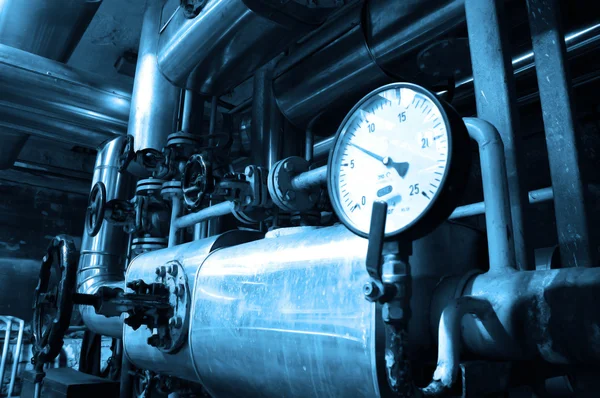Efficient Solutions: Navigating The Boiler Sales Landscape For Optimal Performance
In the realm of industrial infrastructure, boilers stand as stalwart guardians, providing essential heat and power for a multitude of processes. Whether in manufacturing plants, hospitals, or commercial buildings, the efficiency and reliability of boilers are paramount. However, navigating the landscape of boiler sales can be a daunting task, with a myriad of options and considerations to weigh. In this article, we delve into the intricacies of selecting boilers for optimal performance, exploring efficient solutions that promise reliability and sustainability.
Understanding the Importance of Efficiency
Boilers represent a significant investment for any organization, both in terms of upfront costs and ongoing operational expenses. Therefore, maximizing efficiency is not just a matter of environmental responsibility but also a financial imperative. A more efficient boiler system translates to lower fuel consumption, reduced emissions, and ultimately, decreased operating costs.
Evaluating Efficiency Metrics
When assessing boiler efficiency, several key metrics come into play:
- Combustion Efficiency: This metric measures how effectively the fuel is burned to generate heat. Modern boilers employ advanced combustion technologies to optimize this process, minimizing waste and maximizing energy output.
- Thermal Efficiency: Thermal efficiency calculates how efficiently the heat generated by the boiler is transferred to the water or steam. Factors such as insulation, heat exchanger design, and water treatment practices influence thermal efficiency.
- Overall Efficiency: Overall efficiency takes into account both combustion and thermal efficiency, providing a comprehensive assessment of the boiler's performance. It reflects the percentage of fuel energy converted into usable heat.

Exploring Sustainable Solutions
In recent years, the demand for sustainable boiler solutions has surged as businesses increasingly prioritize environmental stewardship. Manufacturers have responded by developing innovative technologies aimed at reducing carbon footprints and enhancing sustainability.
High-Efficiency Condensing Boilers
Condensing boilers extract additional heat from the combustion gases, allowing for higher efficiency levels compared to traditional boilers. By recovering latent heat that would otherwise be lost, condensing boilers can achieve efficiency ratings upwards of 90%.
Biomass Boilers
Biomass boilers utilize organic materials such as wood pellets, agricultural residues, or municipal solid waste as fuel sources. Not only do they offer a renewable alternative to fossil fuels, but they also contribute to waste reduction and carbon neutrality when sourced responsibly.
Combined Heat and Power (CHP) Systems
CHP systems, also known as cogeneration, simultaneously produce electricity and heat from a single fuel source, typically natural gas. By harnessing the waste heat generated during electricity production, CHP systems can achieve overall efficiencies exceeding 80%, making them a compelling option for energy-intensive facilities.
Selecting the Right Boiler
Selecting the right boiler for your specific needs is a critical decision that can significantly impact your facility's efficiency, reliability, and operating costs. With a plethora of options available in the market, ranging from traditional to cutting-edge technologies, it's essential to consider several key factors to make an informed choice.
Load Profile
Understanding your facility's heating and hot water demand is the first step in selecting the right boiler. A thorough analysis of your load profile will help determine the size and type of boiler that best suits your requirements. Oversized boilers not only lead to unnecessary initial costs but also operate less efficiently at part-load conditions, resulting in wasted energy and increased fuel consumption.

Conversely, undersized boilers may struggle to meet peak demand, leading to inadequate heating or hot water supply. By accurately assessing your load profile, you can ensure that the selected boiler operates optimally under varying conditions, maximizing efficiency and performance.
Fuel Availability and Cost
The availability and cost of fuel play a significant role in determining the most suitable boiler for your facility. Different boilers are compatible with various fuel sources, including natural gas, propane, oil, biomass, and electricity. Analyzing the availability and cost of these fuel options in your region is crucial for long-term cost management. Factors such as fuel storage requirements, supply chain logistics, and regulatory considerations should also be taken into account.
Additionally, consider the potential for future fluctuations in fuel prices and availability, as well as any incentives or rebates for adopting renewable or low-carbon fuel alternatives. By carefully evaluating your fuel options, you can select a boiler that not only meets your performance requirements but also offers cost-effective and sustainable operation over its lifespan.
Maintenance Requirements
Regular maintenance is essential to ensure the continued efficiency, reliability, and safety of your boiler system. When selecting a boiler, consider the ease of maintenance and availability of spare parts. Opt for models with accessible components and user-friendly interfaces to facilitate routine inspections, servicing, and repairs.
Additionally, inquire about the manufacturer's recommended maintenance schedule and any warranty or service agreements offered with the boiler purchase. Proper maintenance not only prolongs the lifespan of your boiler but also helps prevent costly downtime and unexpected breakdowns. By investing in a boiler with minimal maintenance requirements and proactive servicing protocols, you can mitigate operational risks and maximize uptime for your facility.
Suite 1/01,10 Ferntree Pl, Notting Hill VIC 3168, Australia
Phone:613-8560-0419

